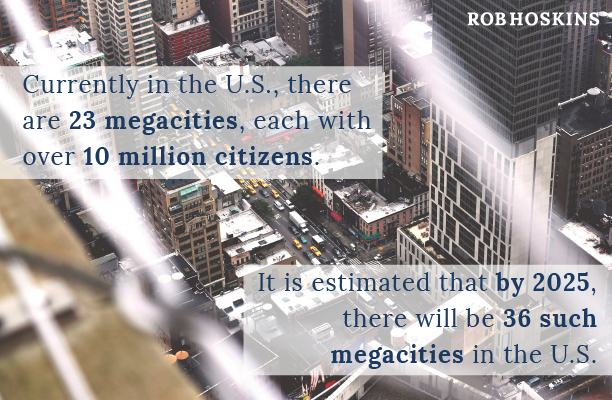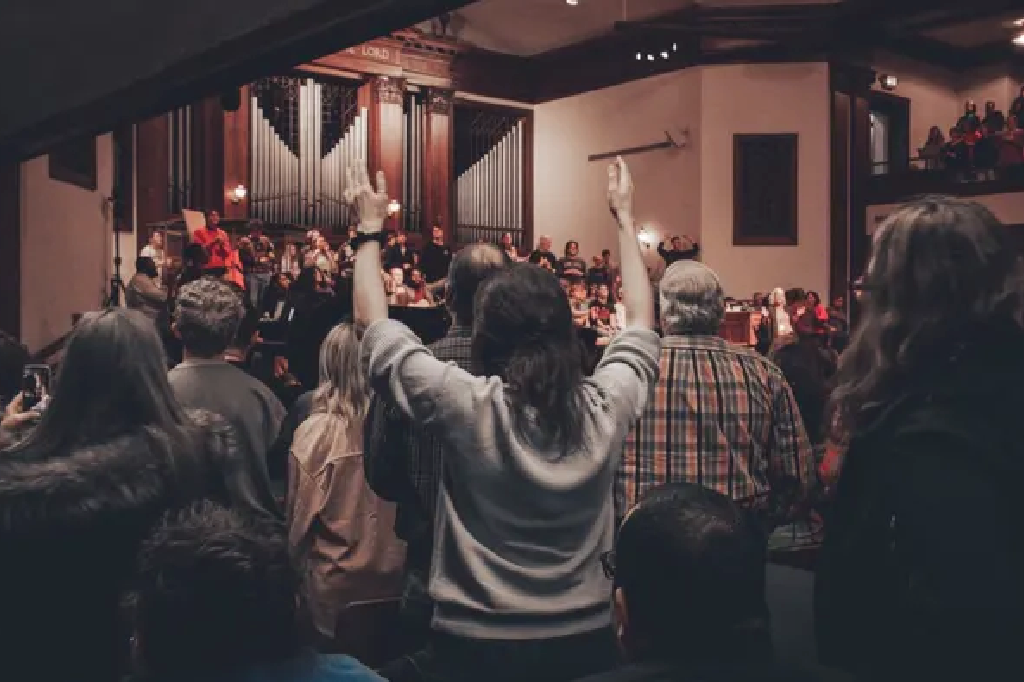Your world is becoming increasingly urban.

The increasing trend toward urbanization is both a national and a global phenomenon. According to the Population Reference Bureau, in 1900 only 14% of the world’s population lived in urban areas. By 1950, this number grew to 30%. In 2011, we reached the tipping point when the world became 51% urban. By 2050, it is estimated that the world population will be nearly 70% urban!1
The reality of urbanization has generated tremendous missiological implications. An entire field of urban missiology has begun to build out around the fresh cry that “The greatest need of our day is for the gospel to enliven first our hearts, and then, our cities.”
[Tweet “Urbanization requires a new and careful analysis of city missiology”]
“Civilization is experiencing a sort of atomizing process, in which the individual is more and more set free from his natural setting in family and neighborhood and becomes a replaceable unit in the social machine.” Lesslie Newbigin
We are just beginning to see the impact urbanization is having on all of humanity. Specifically, urbanization in concert with globalization has carried unprecedented religious and cultural diversity into our cities.2
[Tweet “Urbanization and globalization have amplified pluralism in the city”]
As people with widely diverse cultures, beliefs, and religions live in closer and closer proximity, tolerance and public secularism are fast making gains as social norms.
Today, the Church in the city must step into a socio-cultural milieu that has been created as a result of urbanization, globalization, and pluralism.

These peculiar challenges offer unprecedented opportunities for the Church. In the midst of cultural chaos, the need for a unified witness of the gospel becomes even more imperative.
“If the church is part of the gospel, then it follows that authentic witness can only be ecumenical witness.” (Vinoth Ramachandra, the recovery of mission: beyond the pluralist paradigm)
Now that we know about the changes, the Church needs to forge a fresh ecumenism around a 21st century missiology that transcends geographical, denominational, and confessional identities.
Timothy Tennent calls this, “A deeper, spiritual unity that acknowledges our catholicity because we are all members of the body of Christ and share a common union with Jesus Christ and a burden to bear witness to Him in authentic ways throughout the whole world.”
Ironically, if we employ this rationale, we do so agreeing that the need for authenticity in a globalizing world requires a deep commitment to localization. The unique local quality of cities requires a unique missiological response to particular city contexts.
1 United Nations News, “Around 2.5 Billion More People Will Be Living in Cities by 2050, Projects New UN Report,” https://news.un.org/en/story/2018/05/1009852, accessed January 14, 2019.
2 Josh Dennis, Christ + City: Why the Greatest Need of the City is the Greatest News of All (Wheaton, IL: Crossway, 2013), 98.




2 Comments
I like your article.I love missiology so much.I wrote my thesis on Urbab missions so this looks so relevant to me.It is my field of interest in theology.Thanks so much.I would appreciate to connect more and get regular articles on urban missiology
This is so compelling and inspiring to anyone who feels the heart of God for the lost. Thanks for sharing